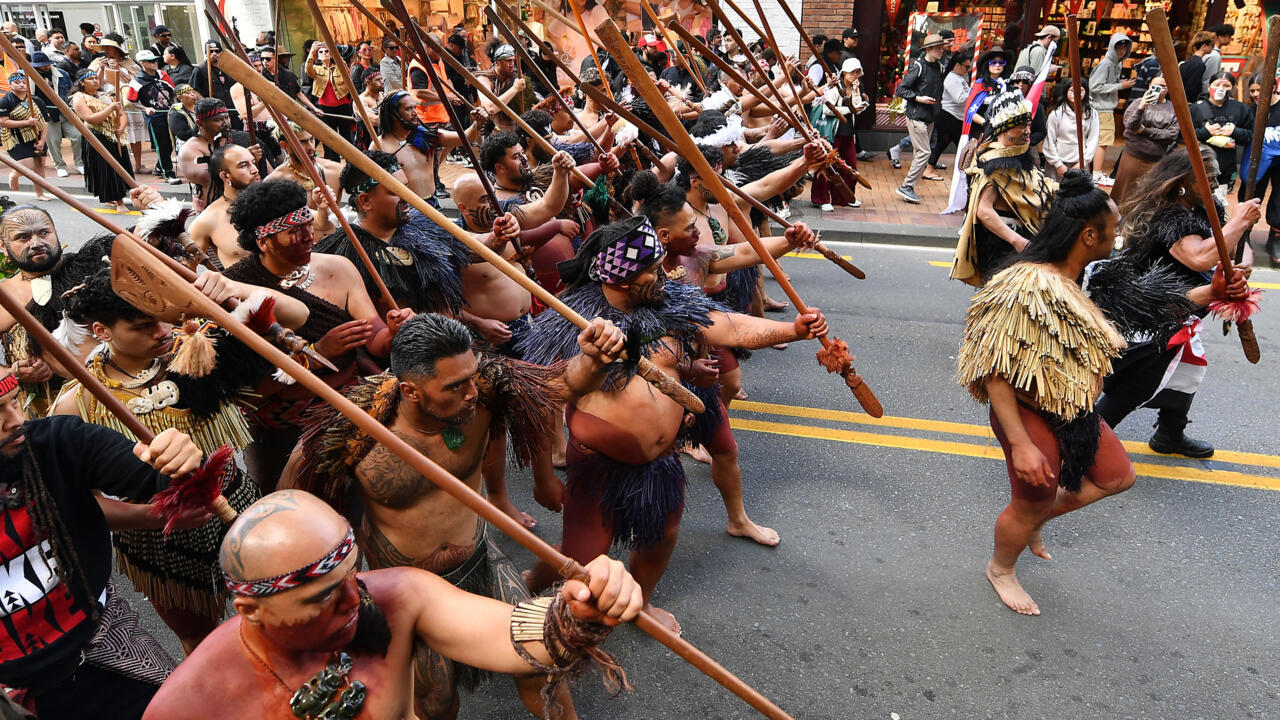More than 35,000 demonstrators poured into the harbourside city of Wellington, police said, shutting down busy streets as their spirited procession inched its way towards parliament. […] Children marched alongside adults bearing distinctive full-face Maori “moko” tattoos and clutching ceremonial wooden weapons.
Protests have been swelling throughout New Zealand after a minor party in the conservative coalition government drafted a bill to redefine the 1840 Treaty of Waitangi. Although the bill has almost no chance of passing, its mere introduction has triggered one of New Zealand’s largest protests in decades. Many critics – including some of New Zealand’s most respected lawyers – see it as an attempt to strip long-agreed rights from the country’s 900,000 strong Maori population.
At the centre of the outcry is government minister David Seymour, the outspoken leader of the libertarian ACT Party – a minor partner in the governing coalition. Seymour has long railed against affirmative action policies designed to help Maori, who remain far more likely to die early, live in poverty, or wind up in prison. His bill would look to wind back these so-called “special rights”.
Seen as the country’s founding document, the Treaty of Waitangi was signed in 1840 to bring peace between 540 Maori chiefs and colonising British forces. Its principles today underpin efforts to foster partnership between Indigenous and non-Indigenous New Zealanders and protect the interests of the Maori community.



Good question. Anyone who is part or all Māori can choose whether they vote for the Māori electorate or the general electorate. As for services, I don’t know. If I had to guess, you’d have to be a member of an iwi (tribe) or at least be part Māori. But there are services for everyone; it’d be Māori-based services that would be aimed at Māori. They have different cultural values and methods, so it’s more the way the services are provided rather than the services themselves.
For example, during the COVID-19 vaccine rollout, there was some discussion about Māori wanting to have their whole whānau (family) vaccinated at the same time because it’s seen as a collective measure and followed cultural Māori family values. At the time, they were being rolled by age, so some people in a family could get it while others couldn’t. There are valid discussions to be had for both methods.
TL;DR - if someone has Māori ancestry, they can choose which electorate to vote in and which services to receive
Right, it’s not hard to imagine it being divisive and controversial with some people being able to choose and switch between which laws they’re governed by